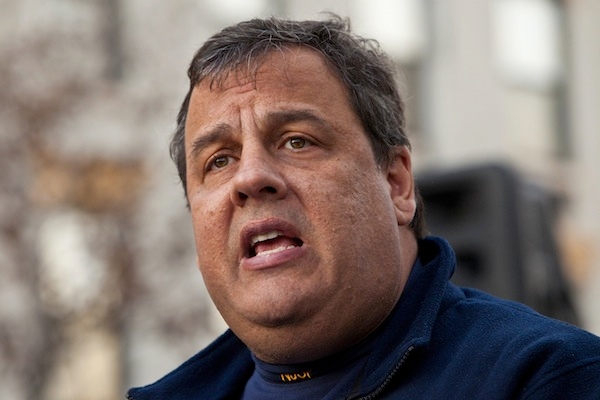It may be less than a fortnight since the 2012 US elections, but it’s never too early to start speculating about what might happen in the next ones. So here’s a quick first look:
2013: New Jersey and Virginia (and Massachusetts?)
It may be an off-year, but there’ll be at least two — and possibly three — exciting high-profile races to look forward to. Republican Chris Christie will likely run for a second term as Governor of New Jersey. He has strong approval ratings and has been praised for his response to Hurricane Sandy, but will likely face tough opposition in a state that Obama carried by 17 points. One potential Democratic challenger is Newark Mayor Cory Booker (who rescued his neighbour from a fire in April). A poll last month found him trailing Christie by just four points, 46-42.
In Virginia, Republican Governor Bob McDonnell will not be running, as the state constitution bars incumbents from seeking reelection straight away, and both parties look set to have competitive primaries. On the Republican side, state Attorney General Ken Cuccinelli is running against McDonnell’s Lieutenant Governor, Bon Bolling. Meanwhile, Terry McAuliffe — who chaired Hillary Clinton’s 2008 presidential campaign — is running for the Democratic nomination, but will probably face opposition from former Congressman Tom Perriello, and possibly from former Governor and current Senator Mark Warner. The early polls point to a close election, unless the very popular Senator Warner does enter the race, in which case he’d be the clear favourite.
There’s also a chance of a special Senate election in Massachusetts, if President Obama picks John Kerry to serve in his Cabinet as Secretary of State or Defense. If so, Republican Scott Brown — who lost his seat to Elizabeth Warren last week — would be hopeful of a quick return to the Senate. But the Democrats would be keen to beat him again — possibly with former Congressman Marty Meehan or Newton Mayor Setti Warren (no relation to the Senator-Elect).
Oh, and New York City will elect a new Mayor. Michael Bloomberg will have served three terms, the maximum allowed.
2014: The midterms
33 of the 100 Senate seats and all 435 House seats will be up for election. After the Democrats managed to retain — and extend — their Senate majority this year, they’ll face another tough set of races in the midterms. They’ll be defending 20 seats, many of which are in red states: Alaska, Arkansas, Louisiana, Montana, North Carolina, South Dakota and West Virginia. The Republicans, meanwhile, will be defending just 13 seats, and 12 of them are in reliably Republican states. The only exception is Maine, which the GOP should hold provided popular moderate Susan Collins runs for reelection and wins her primary. Overall, then, the fundamentals favour the Republicans, though probably not enough for them to take control of the Senate. But much the same was said in the run-up to last week’s elections, and the Republicans seemed sure to gain at least a few seats. Instead, the Democrats gained a net of two. They’ll be hoping to pull off a similar feat in 2014. One potentially very high-profile race is the one in Kentucky, where actress and Democratic activist Ashley Judd might challenge Republican Senate Minority Leader Mitch McConnell.
As for the House, this year demonstrated how tough it will be for the Democrats to overturn the Republican majority. They won more votes than the GOP, but look likely to end up with 33 fewer seats. Nate Silver has an excellent post on why they are unlikely to regain control next time. Still, they’ll hope to build on the gains they did make this time and at least narrow that Republican majority a little further.
The Democrats should have a decent chance of making gains in the Governor’s mansions up for election in 2014. The Republicans have unpopular incumbents in Democrat-leaning Maine, and swing states like Florida, Pennsylvania and Ohio. They may also have a tough job defending in Arizona, Iowa and Michigan. The Democrats will have to mount strong defences of their own though, particularly in Arkansas (where incumbent Mike Beebe cannot run for reelection as he’ll have served the maximum of two terms) and Illinois (where incumbent Pat Quinn is deeply unpopular).
2016: Replacing Obama
President Obama won’t be on the ballot in November 2016, as the 22nd Amendment prevents him from seeking a third term. So who’ll be in the running to replace him? It’s very early days, of course but already a few names are attracting the bulk of speculation. We’ll have another post detailing the very early favourites for 2016 tomorrow.






Comments